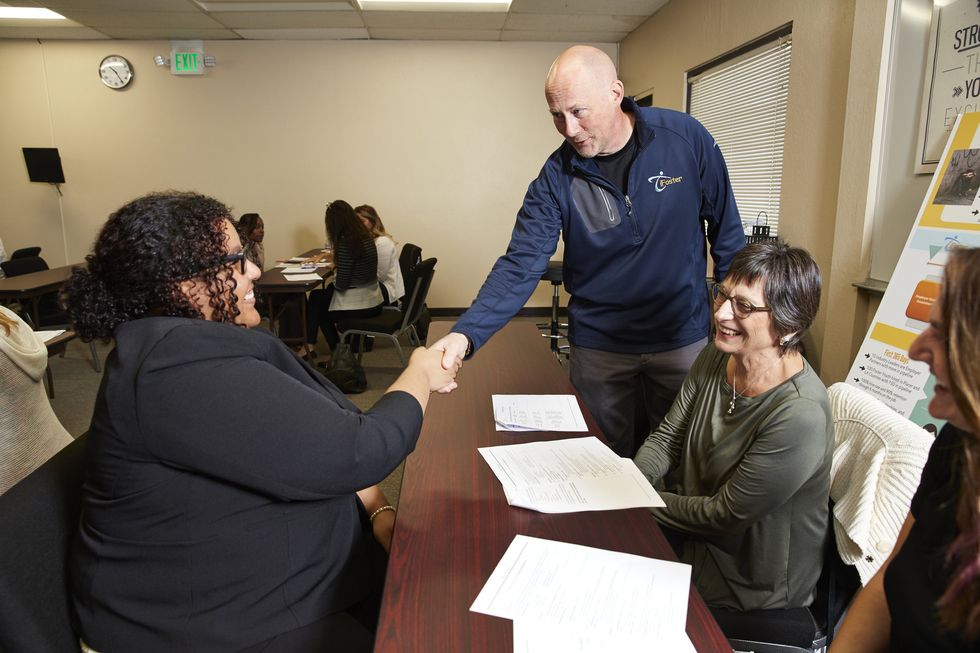Internships can open many doors, but those in tech can be especially tough to land and not always the most welcoming environment for women and people of color.
The nonprofit LATech.org launched an initiative with county supervisor Holly Mitchell this week to provide 1,000 students of color paid tech internships with companies like Snap Inc, ride sharing service HopSkipDrive and Cornerstone OnDemand.
The idea is not only to make the process more accessible for students, but also to encourage a pipeline of talent in a lucrative industry traditionally dominated by white men.
After the murder of George Floyd, LATech.org founder and former co-chair and founder of talent management system Cornerstone OnDemand Adam Miller thought it was "necessary" for him to use all his resources to help the most vulnerable in his community.
So far, fifty companies are participating, with each taking at least two interns at a time.
In the long run, it aims to open up a path to prosperity and chip away at deep-seated inequities.
"The average person who enters work in tech, relative to most in other fields, will, over the course of their lifetime, earn $2 million more," said Miller.
Entering an internship can be intimidating for anyone, and even more so when you are the only person of your race or ethnicity. Miller believes that by pairing interns up, this will provide a community and lessen the sense of being "the diverse intern." He also hopes that initiatives like this can help students realize that you don't need to be an engineer to work in tech in Los Angeles -- internships offered will span: design, marketing, product development and sales in addition to engineering.
The cost of the fellowship for the first 100 interns from South LA will be split between Mitchell's office and the companies.
Kristen Mae Hernandez, a senior at California State University Long Beach who is participating in the program said that as a woman of color she felt like an "other" in the predominantly white field of STEM.
"Even when I was accepted into [California State University] Long Beach, I faced a lot of prejudice. I had a lot of impostor syndrome," said Hernandez.
LATech.org will supplement the learning experience with multiple networking events as well as career counseling sessions. There will be six sessions over the span of the next two years. Every two weeks, a separate cohort will come in with around 20-30 students, all of whom range from 16 to 24.
Miller sees this as an opportunity for tech companies to diversify their ranks.
"Talent comes in all shapes and sizes, and the tech industry has a very tight labor market. The reality is that they're only looking at a portion of the pool. There is tremendous opportunity," said Miller.
The company aims to expand its roster of participants, and eventually have up to 100 companies involved.
"This is the largest such initiative in any city," said Miller. "So, if this works we hope to inspire other tech hubs to do the same."



